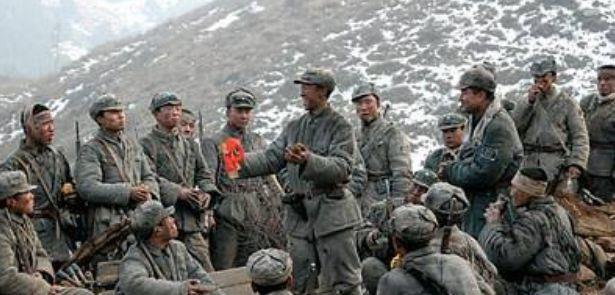During the period of Japan's all-out invasion of China, the Chinese military and people rose up to resist. At that time, the Kuomintang and the Communist Party achieved the second cooperation, and the Red Army accepted the reorganization of the Nationalist government into the Eighth Route Army. After the adaptation, almost all of them were downgraded and used, but these three people were not demoted, but instead of being demoted, they were upgraded several levels. Who are these three people? Did you know?

In modern times, China was poor and weak, and countries around the world tried to gain some benefits from China. Among them, Japan's behavior is the most arrogant and hateful, and Japan launches an act of aggression against China under the name of "common prosperity in East Asia." Beginning in 1931, Japan's ambitions were clear. In 1937, the Kuomintang and the Communist Party cooperated for the second time to jointly resist the Japanese invaders. At this time, the Chinese Workers' and Peasants' Red Army accepted the reorganization of the National Government.
After the Red Army was reorganized into the Eighth Route Army, the number and units underwent earth-shaking changes. It turned out that many generals in the Red Army had been invisibly demoted, and only these three people had not been demoted because of the reorganization, but had been promoted to a certain extent. Who are these three people?
The first, Yang Dezhi
Born in a blacksmith family in Hunan, Yang Dezhi learned to play iron with his father. Because of his general family conditions, Yang Dezhi entered the society relatively early. In 1928, Yang Dezhi joined the 7th Division of the Workers' and Peasants' Revolutionary Army, which can be regarded as officially joining the revolution. During the Long March, Yang Dezhi served as the leader of the Red 1 Regiment.
During the War of Resistance Against Japanese Aggression, after the Red Army was reorganized into the Eighth Route Army, Yang Dezhi served as the commander of the 685th Regiment and led his subordinates to participate in the Battle of Pingxingguan. After that, Yang Dezhi led the team to defeat the Japanese puppet army sweep many times, and dealt a heavy blow to the Japanese invaders. By the time he was awarded the title in 1955, Yang Dezhi was awarded the title of founding general.
Second, Yang Chengwu
Yang Chengwu was born in a poor peasant family in Fujian Province, and even so, Yang Chengwu received an advanced education through his own efforts. For the current situation at that time, Yang Chengwu had his own unique views. It can be said that Yang Chengwu was born for the Chinese revolution and always pays attention to the development of the country.
In 1929, Yang Chengwu participated in the local armed rebellion in the ancient city of western Fujian and joined the Red Army. When it came to the Long March, Yang Chengwu served as the political commissar of the Red 4 Regiment. After the beginning of the All-out War of Resistance Against Japanese Aggression, when the Red Army was reorganized into the Eighth Route Army, Yang Chengwu served as the commander of the independent regiment. Yang Chengwu made great achievements in the anti-Japanese battlefield, and it is worth mentioning that Yang Chengwu killed the famous Japanese general Norihide Abe, which can be described as inspiring. When he was awarded the order in 1955, Yang Chengwu was awarded the founding general.
Third, Liang Xingchu
Liang Xingchu, nicknamed Liang Daya, was born in Jiangxi to a poor family of craftsmen. When Liang Xingchu was young, he was deeply exploited by the landlords, and he hated this ruthless oppression to the extreme. In 1930, Liang Xingchu became a member of the Chinese Workers' and Peasants' Red Army and officially joined the revolution. During the Long March, Liang Xingchu served as the commander of the reconnaissance company and was responsible for the reconnaissance work of our army.
When the Red Army was reorganized into the Eighth Route Army, Liang Xingchu served as the battalion commander of the 3rd Battalion of the 685th Regiment. In this reorganization, Liang Xingchu was promoted from company commander to battalion commander. In the War to Resist US Aggression and Aid Korea, it can be described as Liang Xingchu's battle for fame. By the time he was awarded the title in 1955, Liang Xingchu was awarded the title of founding lieutenant general.
During the period of the All-out War of Resistance, the Chinese military and people rose up to resist, and the Chinese Workers' and Peasants' Red Army accepted the reorganization of the Nationalist Government. At that time, almost everyone in the Red Army was demoted, and only the above three were promoted. The reason for this must be that these three people have outstanding ability.